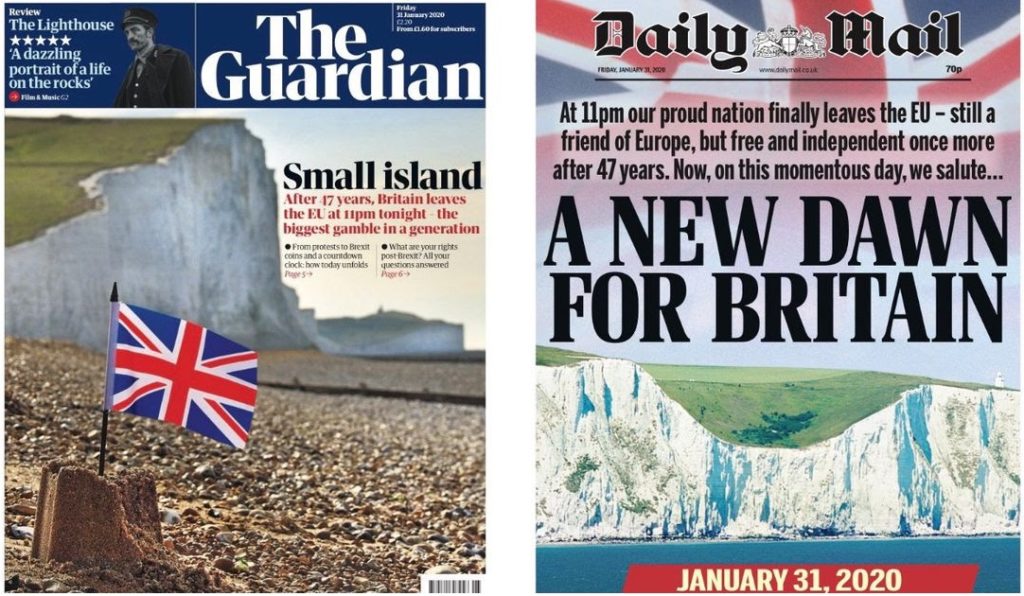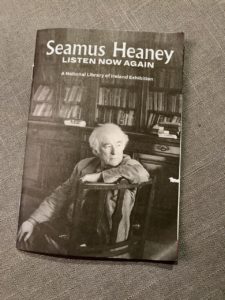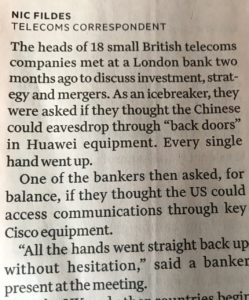Brexit day!
In the long view of history, it may be that the UK’s membership of the EU was just a 46-year blip. The country has historically always meddled in Europe, but without being part of it. So — for good or ill — this is a reversion to normal.
Ironically, though, if the Referendum were held now, the result might be different. John Curtice, the UK’s pre-eminent pollster, writes:
Two questions inevitably arise. The first is where does the public stand on the merits or otherwise of the decision to leave? Did the Conservatives’ success in the general election affirm the result of the 2016 referendum in which a majority (52%) voted to Leave? The second is what kind of future relationship with the EU do voters – on both sides of the argument – hope will emerge from the talks on that relationship that will now be instigated between the UK and the EU?
Polling of how people say they would vote in another referendum still suggests – as it has done throughout the last two years – that the outcome of a referendum on Brexit held now would be different from the one that emerged from the ballot boxes in June 2016. Our poll of polls, based on the six most recent polls of how people would vote in another referendum, on average currently puts Remain on 53%, Leave on 47%.
This is not because polls suggest that there has been any significant change of mind among those who voted Leave. Rather, as shown by our table – which is based on the last six polls of EU referendum vote intention to be conducted before the general election on December 12 – it is primarily because those who did not vote three years ago (some of whom were too young to do so) are around twice as likely to say that they would vote Remain as to state that they would vote Leave. The pattern, whereby over 85% of both Remain and Leave voters say that they would vote the same way but those who did not vote are more inclined to prefer Remain, has repeatedly been in evidence throughout the last year.
In politics, as in in sport, timing is everything.
The authoritarian response to crisis: lockdown, no discussion
The NYT has a fascinating account by writer Ian Johnson of what it’s like to be there at the moment. He lives in a gated compound in Beijing and was trying to get into it when cycling home from a local bar. He found the usual entrances locked.
So I headed toward the north entrance. That one is for pedestrians and has two barriers set slightly apart, just wide enough to get through on foot. That’s O.K., I thought, I can squeeze by with my bike and be home in a few minutes.
I rode around the block, but when I got to the gate I had to slam on the brakes. Someone had taken a dozen ride-share bikes, lashed them together with wire and piled them in between the barriers. Then, for good measure, they’d fastened the heap to the posts with more wire, making it into some sort of postmodern commentary on our hyper-mobile society.
He went round to the entrance for cars, to find it blocked by guards who interrogated him but eventually let him through. Back at his apartment he was visited by two people from the apartment block management who gave him a helpful document from the local Communist Party district committee. “Do seek help”, it began
Do listen to the local government. Do keep warm. Do stay at home. Do avoid contact. Do wash your hands. Don’t spit. Don’t exert yourself too much. Don’t associate with people who’ve recently arrived from the infected area around the megacity of Wuhan. On the back was a list of all the Communist Party street committees and their phone numbers.
“The German language”, Mr Johnson reflects, “has a hyper-specific word for this phenomenon: ‘Aktionismus,’ literally Actionism, or action for action’s sake.”
What I was witnessing was Aktionismus in the face of a problem that required a sensitive response involving public trust. But since the Chinese government cannot elicit either of those things, I was seeing the compensatory flailing-around of a state with no other options.
Instead of having an adult conversation with the population about the virus and putting in place reasonable policies that have been used effectively elsewhere, the Chinese state has gone into full lockdown mode. This demonstrates one of those truisms from political science: Authoritarian governments are like people who don’t have any fingers but do possess two thumbs. They can take forceful actions but can’t fine-tune the levers of government.
So what is this about? Johnson thinks it’s about trust, or, rather, mistrust — which means that
it’s hard for the government to say what many epidemiologists are saying: This outbreak is serious but not catastrophic. Because if the state leveled with the people, it would also have to admit that there is no need for this degree of social control. Fewer than 200 people were reported to have died as of Thursday evening, in a country of nearly 1.4 billion, and there is no indication that we are at the start of a Hollywood disaster-style movie.
The government’s inability to formulate a measured response will turn this outbreak into a direct successor of the SARS epidemic. That hardly was a huge public health disaster — fewer than 800 deaths — yet it has taken on a legendary reputation as a catastrophe of unimaginable proportions, one that should never be allowed to recur.
Sounds plausible. We’ll just have to see if he’s right.
Web scraping is Now legal
In late 2019, the US Court of Appeals denied LinkedIn’s request to prevent HiQ, an analytics company, from scraping its data. If it stands, looks like an historic judgment, but LinkedIn can still appeal to the Supreme Court (which is under no obligation to take it). The judgment says that any data that is publicly available and not copyrighted is fair game for web crawlers. But there are still restrictions on use of scraped data for commercial purposes (see the Clearview problem)







